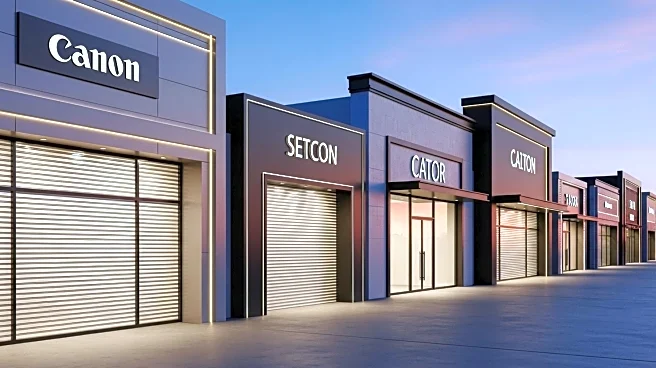What's Happening?
In 2025, several prominent retail chains have significantly reduced their number of stores, with closures occurring across various sectors. Notable department stores such as JCPenney, Kohl's, and Macy's have closed multiple locations, while some have ceased operations entirely. The closures are attributed to increased competition from fast fashion online retailers like Shein and Temu, which have impacted traditional department stores. Additionally, Advance Auto Parts has announced the closure of over 500 locations as part of a strategic plan to revitalize its business. The trend of store closures is not limited to any specific type of retailer, affecting clothing, automotive, and electronics stores alike.
Why It's Important?
The widespread closure of retail stores in 2025 highlights the shifting landscape of consumer shopping habits and the growing dominance of online retail platforms. This trend poses significant challenges for traditional brick-and-mortar stores, which must adapt to changing consumer preferences and competitive pressures. The closures may lead to job losses and economic impacts in communities reliant on these stores for employment and commerce. Furthermore, the strategic decisions by companies like Advance Auto Parts reflect broader efforts to streamline operations and focus on profitability in a rapidly evolving market.
What's Next?
As retail chains continue to close stores, the industry may see further consolidation and strategic shifts towards enhancing online presence and customer experience. Companies might invest in technology and logistics to compete with online giants, potentially leading to innovations in retail operations. Communities affected by store closures may seek economic diversification to mitigate impacts, while policymakers could explore measures to support displaced workers and stimulate local economies. The ongoing evolution of retail strategies will likely shape the future of shopping and consumer engagement.









